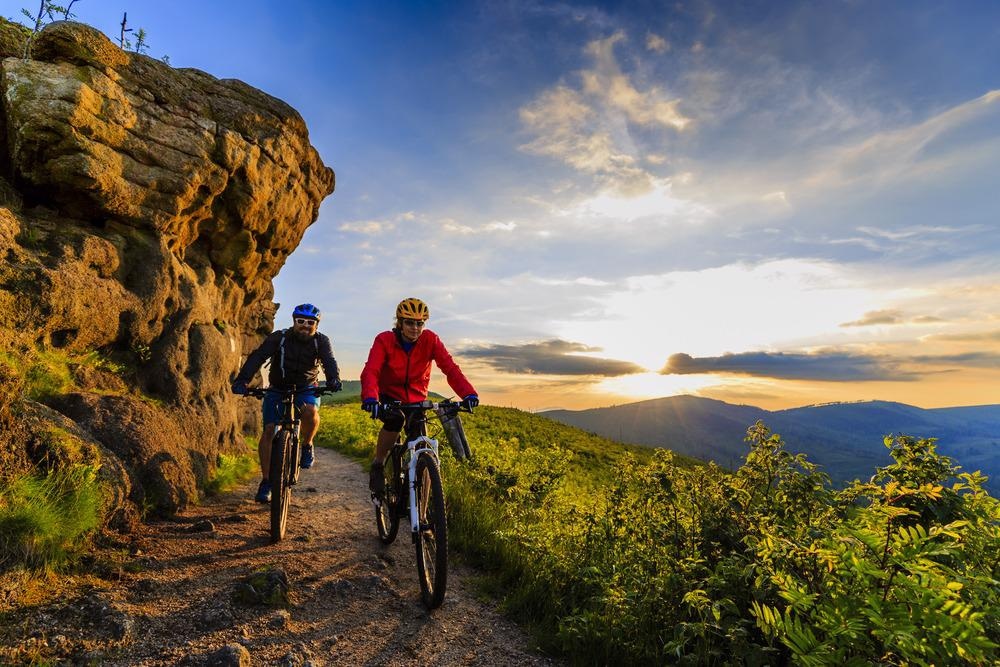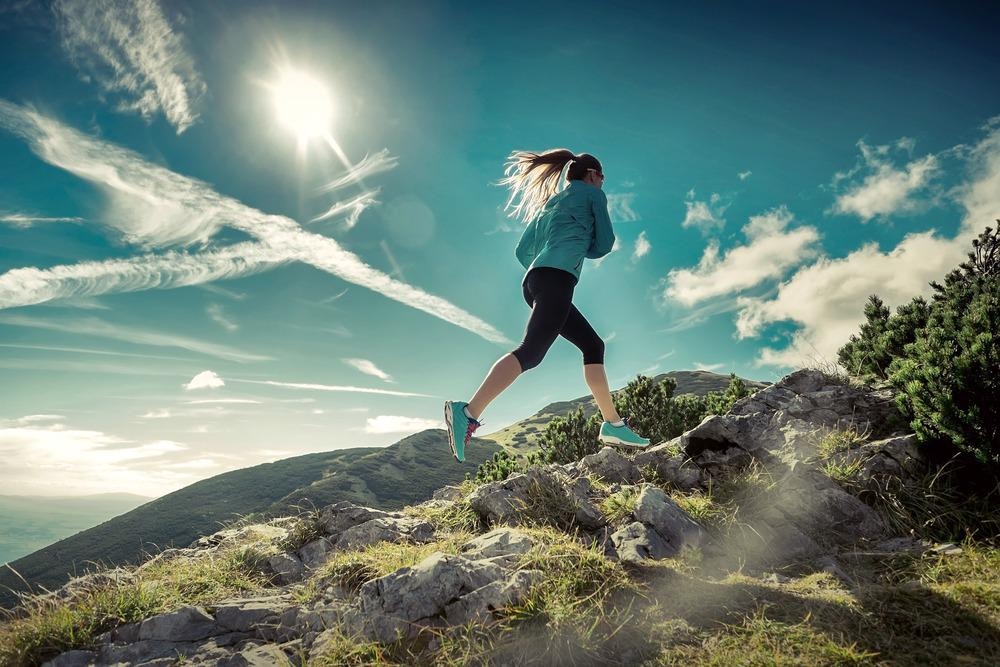There are positive advantages to be had from spending our leisure time outdoors. Doing so has been deemed beneficial to our physical and mental health and wellbeing. This is to the extent that there is recommended guidance for the minimal amount of time we should spend time in the natural world to enable us to successfully harness these benefits.

Exercising outdoors. Image Credit: gorillaimages/Shutterstock.com
In this article, we consider the benefits of spending time in the natural world no matter where we live, the positives for our health and finally, we discuss ecotherapy - the therapy that you may not yet have heard of, but you need to know more about.
Nature is good for us!
Did you know it is recommended we spend at least 120 minutes a week outdoors in a natural environment? This might be in parks, woodlands, forests or beaches. The amount of direct contact with nature is a factor aside from the environment we live in day to day which may be invariably greener or more urbanized.
Epidemiological research suggests that the more contact time we spend in a natural environment, the better our health and wellbeing. This is true of high socio-economic populations in urbanized areas. Meanwhile living in greener, ruralized areas is linked to lower incidence of:
- Cardiovascular disease
- Mental distress
- Obesity
- Asthma hospitalization
- Diabetes
Ultimately, living in a cleaner environment is associated with a reduced probability of mortality. And the closer we live to green space the more likely we are to spend time in it. Yet, there is no directly determinable correlation because those living in urbanized areas may spend time traveling to greener spaces in their spare time to compensate for the lack of exposure to nature on a day-to-day basis.
Socio-demographic factors such as age, gender, ethnicity and area deprivation are thus an essential component for any analysis or debate.
Mental health benefits of time spent outdoors
Research supports the value of nature experience for positive mental health. There is growing empirical evidence to link the impact of nature on mental capacities of cognitive functioning, emotional wellbeing and other facets of our mental health. Spending time outdoors can work to alleviate and offset life pressures such as financial difficulties and technologically associated isolation.
The intuitive knowledge that spending time in nature is naturally good for us is a globally recognizable and long known phenomenon. In Japan, for instance, one way to combat stress is the traditional practice of “Shinrin-yoku” or forest bathing which involves walking in a forest, taking in the scenery and breathing in the ‘green’ air. This is considered a kind of meditation and an art.
Besides spending time in nature human well-being is linked to the natural world in other fundamental ways too. The contributions of living nature are taken to include the diversity of organisms, ecosystems and their processes to human quality of life and these have been referred to as “ecosystem services” (Bratman et al., 2019). These services include:
- Water purification
- Provision of food
- Climatic stabilization
- Flood protection
A consideration of the psychological benefits of spending time in nature naturally brings us to the topic of ecotherapy.

Exercising outdoors. Image Credit: Andrey Yurlov/Shutterstock.com
What is ecotherapy?
Ecotherapy is a therapeutic treatment that involves spending time outdoors amidst nature and with a focus on engaging in activities. While there is not one single definition of ecotherapy, it normally means participating in regular structured activities that are:
- Professionally organized
- Active - the focus is on the activity rather than health promotion
- Takes place in nature/in a green environment
- Related to exploration and appreciation of the natural world
- Social - involves other people
The various activities might involve horticultural work, exercise, socialization focused tasks or more therapeutic events. And it does not matter where you live. Groups are set up and organized in cities and more rural settings alike. Perhaps you will spend time engaged in a conservation project, simply gardening or you could join others for a walk or cycle ride. There is normally a fair amount of flexibility in the way sessions are organized and run.
Ecotherapy can also be combined with other activities and treatments such as:
- Medication
- Talking therapies
- Art and other creative therapies
In summary, spending more time in a natural environment can only be beneficial for our physical and mental health. Thus far research suggests the 120 minute threshold is currently an arbitrary value but an important one. It has been acknowledged that more studies are yet needed before any clear conclusions can be inferred.
As well as the amount of time spent in nature, we need to understand more about the impact of different types of activities undertaken. What is clear is that whether we opt to engage in the ancient art of Japanese forest bathing, undertake a few sessions of ecotherapy or simply go for a walk in the park with our pet dog ––more time spent in contact with nature can only be good for us.
References
- Bratman, G. N. et al. (2019) Nature and mental health: An ecosystem service perspective. Online: DOI: 10.1126/sciadv.aax0903.
- Hansen, M. M. (2017) Shinrin-Yoku (Forest Bathing) and Nature Therapy: A State-of-the-Art Review. Environmental Research and Public Health. Doi: 10.3390/ijerph14080851.
- Mind (2021) Ecotherapy. Online: https://www.mind.org.uk/information-support/drugs-and-treatments/talking-therapy-and-counselling/ecotherapy/.
- White, M. P. (2019) Spending at least 120 minutes a week in nature is associated with good health and wellbeing. Scientific Reports.
- Doi: 10.1038/s41598-019-44097-3.
Further Reading
Last Updated: Feb 21, 2022